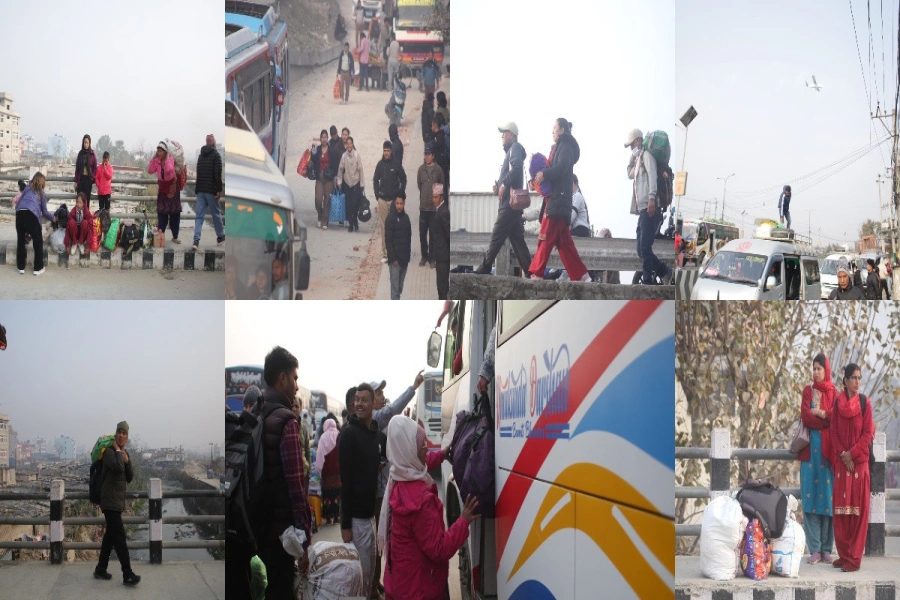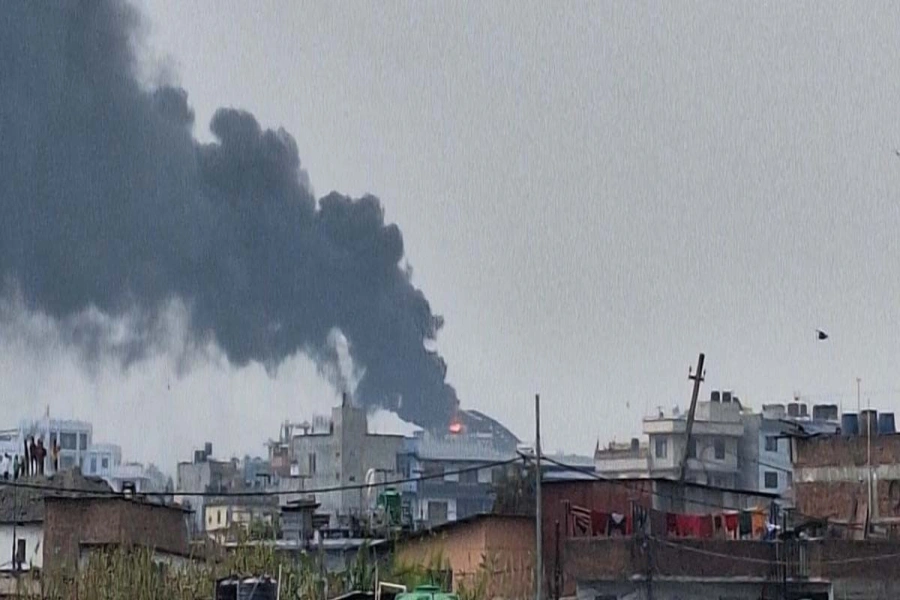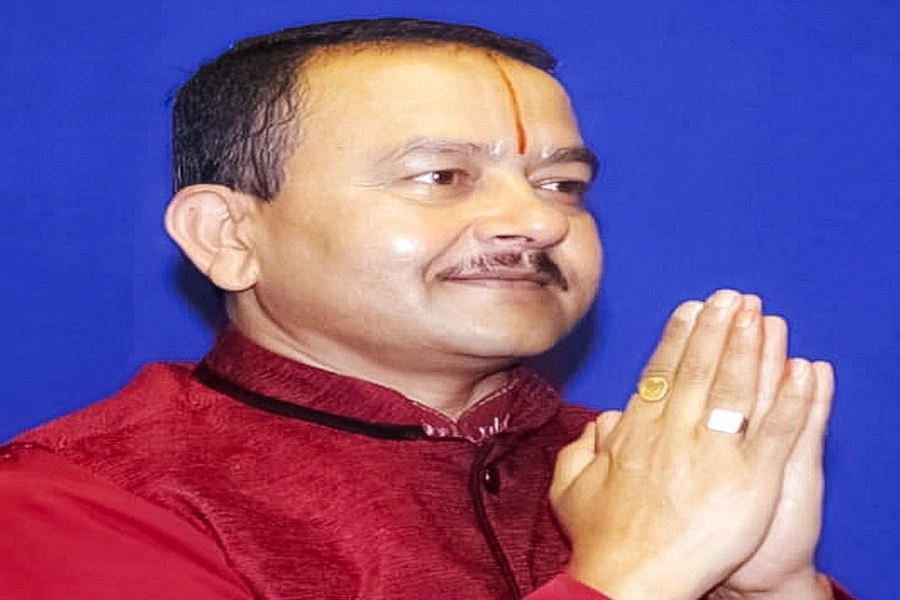KATHMANDU, Aug 15: CPN-UML Vice Chairman Bhim Rawal has said that 15 various Indian dams and embankments near the Nepal-India border, the Indian river-linking project and the exploitation of the Chure area and river banks have caused the flood disaster in the tarai.
Tabling a motion of public importance concerning floods, inundation, landslides and rescue and relief in parliament on Tuesday, Rawal said that most of the Tarai-Madhes area has been submerged due to dams built unilaterally on the Indian side near the Nepal border.
“Our lands are inundated from the Mechi to Kanchanpur due to five different kinds of dams of different capacities and names built in India near the border,” said Rawal at the House meeting. “If we don’t take up this issue in parliament, the tarai area will have to face more disasters in future,” he said.
Rawal said the Laxmanpur dam and Kalkalwa embankment near Banke district have obstructed the natural flow of water, resulting in inundation in the district. “As many as 1,000 individuals of 300 families have been stranded in the district without food and water,” said Rawal.
According to him, the Mahali Sagar dam has been build in Kapilvastu district just 10 km from the Nepal-India border, which is against international law. “The international convention on embankments states that any country should ask the adjoining country about the effect of such embankments before starting construction,” he said.
He also said that the Rasiawal Khurdlotan dam is located just six km away from Lumbini, the birthplace of Gautam Buddha and it is obstructing the flow of the Danab and Danda rivers.
Ousted UML Vice Chair Bhim Rawal receives welcome from royalist...

The UML lawmaker claimed that the 3.5 km long Tanakpur dam along the Mahakali river in Kanchanpur district has caused inundation in Nepal.
Likewise, the Sarada dam built just 11 km from Mahendranagar has caused inundation in the Chandani and Dodhara areas. “Though India had to provide about 292 ropani of land in compensation to the Nepal side, it has not done so yet,” he said.
Kailashpuri dam, also known as Girijapuri, has been built 10 km from Bardiya, obstructing the Mohana and Karnali rivers, and this causes inundation in many areas of Kailali and Bardiya, said Rawal. Also, another dam had been built in Kailali just 20 meters from the border, obstructing the Mohana.
Rawal said that a dam has been built in Darakhola just 20 meters from Pillar No 37 on the Nepal-India border, affecting 3,000 people. Another embankment has been built just six meters from Pillar No 519/25 in
Rupendehi district, obstructing the natural flow of the Suiya river, according to Rawal.
Over a dozen villages in Nawalparasi district have been submerged after the Narayani river was blocked by the Gandak dam, he said.
According to Rawal, the Lalbakaiya dam in Rautahat district should have been build on both sides, but it has been build in such a way that the Nepal side is submerged every year. “As a result, Gaur and other areas have been submerged. Gaur Municipality has been over 90 percent submerged, according to local MPs,” he said. Another embankment has been built 10 km from the border in Rautahat, causing inundation in areas around Gaur every year.
The Bagmati embankment is also causing inundation in Sarlahi district and the embankment at the Kamala river has been inundating Dhanusa and Siraha districts, said Rawal. “The Indian side has linked the Jaynagar irrigation project to Kamala embankment, causing flooding on the Nepal side,” he said.
UML leader Rawal said that though international law bars the building of any structures along no-man’s-land, a three-km dam has been built on the Gagan river near Harkatti village close to Pillars No 256-1 to 4. This has caused inundation in six villages in Siraha.
A dam built on the Khando river near Lalpatti has caused inundation in Saptari district most of the time. The five-km dam built just five km from Pillars No 222 and 223 has blocked the flow of the river, according to Rawal.
The Koshi dam has caused inundation in 6,800 hectares in Saptari and Sunsari districts and India has been benefitting from this dam unilaterally, he said. India has built a 300-meter-long embankment on the Bakraha river near no-man’s-land in Morang district, blocking the flow of the river to the Indian side, he informed parliament.
According to Rawal, India has been building a 12,500 km long river linking project in the bordering areas without consulting the Nepali side. This comprises barrages, dams, embankments and canals and is almost sure to cause inundation on the Nepali side, he said.
“Five different commissions have been formed between Nepal and India to settle water resources and inundation-related problems. But such problems have not been settled due to instability in Nepal,” Rawal said. Encroachment of river banks and exploitation of the Chure are also major causes of flooding and inundation. “Border area dams have made this problem worse,” said Rawal.
Earlier, Home Minister Janardan Sharma said that Nepal should study the matter before signing any international treaty and bilateral agreement.






-1200x560-1772467693.webp)






























